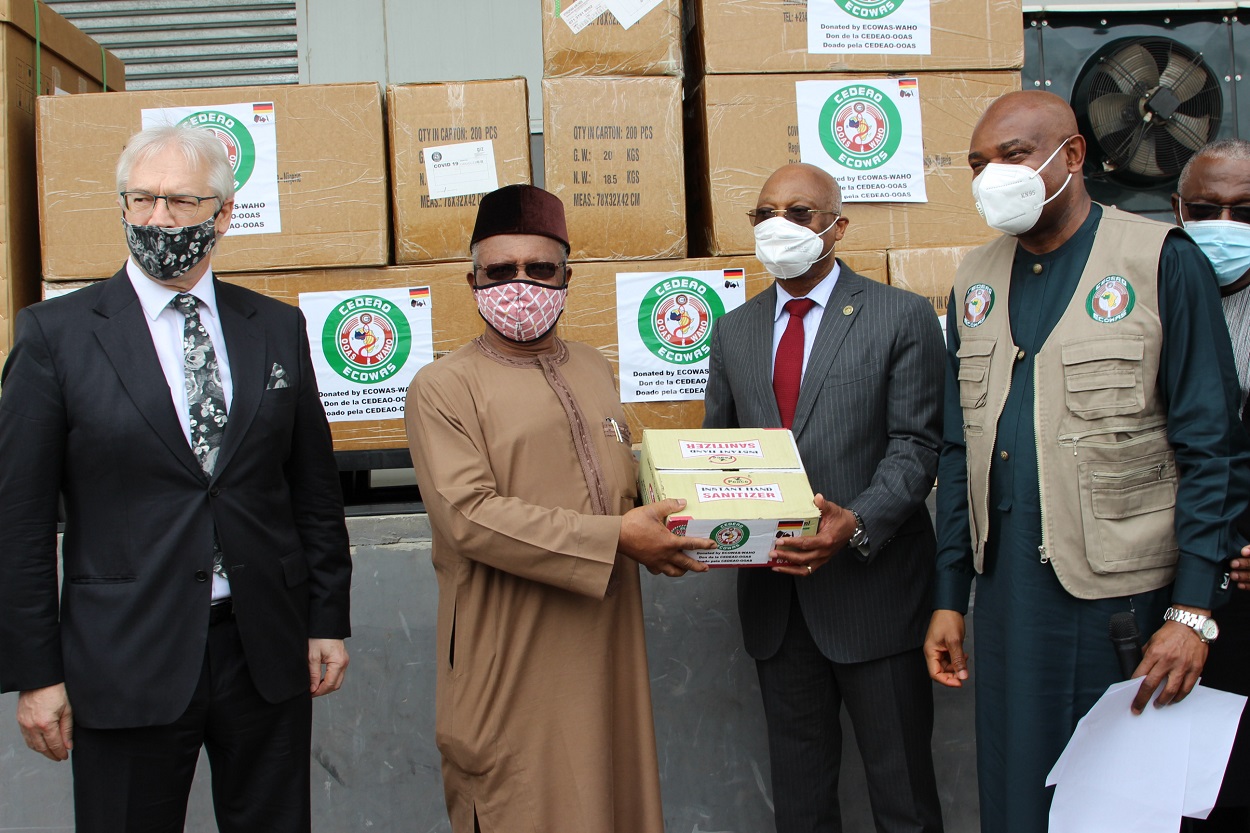He explained that given the urgency in the sub-region and the vulnerability of the ECOWAS’ population to the COVID-19 pandemic and other diseases, the ECOWAS Commission and WAHO under the ECOWAS Authorities of Heads of States and Governments are facilitating efforts to boost local vaccines manufacturing and other medical supplies in the sub-region.
Improving infrastructure and human resource capacity
This, he said, cannot be achieved without the needed improved infrastructure and human resource capacity.
According to him, the COVID-19 pandemic had shown that low- and middle-income countries have had to rely mostly on donations of vaccines from rich nations.
Building continental and regional manufacturing capabilities
Prof Okolo, however, explained that research had shown that building continental and regional manufacturing capabilities will contribute to pandemic preparedness and strengthen the response to feature outbreaks.
70% vaccination target requires 370m doses
Currently, he said West Africa requires some 370 million doses of COVID-19 to meet the 70% vaccination target.
Sharing knowledge and expertise
He appealed to the manufacturers to openly share their knowledge and expertise and effectively collaborate with one another to achieve the expected breakthrough in vaccine manufacturing in Africa.
Political will obtained
He said one important aim of WAHO is obtaining the political will and the go-ahead of ECOWAS Council of Heads of States and Governments to bring together manufacturers, partners, external collaborators and regulators to advance the manufacture of COVID-19 vaccines.
“Some of the things we have done on the health side is the harmonisation of the regulations so that you don’t have to go through 15 different countries in order to register a medicine, but you go to a central platform,” he added.
The World Health Organisation (WHO) Regional Director for Africa, Dr Matshidiso Moeti, in a speech read on her behalf, pledged her office’s commitment to support ECOWAS.
“We want to confirm the commitment of WHO regional office for West Africa, in collaboration with WHO headquarters, our great commitment to support member states to strength capacity for local production in the region and support member states,” she disclosed.
Dr Moeti noted that the COVID-19 pandemic laid bare the over-reliance of low- and middle-income countries on donations from rich nations.
Chairman of the Presidential Vaccines Committee, Professor Kwabena Frimpong Boateng, said Ghana was working closely with Rwanda and Senegal in the development of the COVID-19 vaccines, which is expected soon in the country for packaging and distribution for commercial use by 2024.
He gave some highlights of Ghana’s progress regarding its vaccine development efforts, citing the expected completion of the National Vaccines Institute infrastructure by the third quarter of 2022 to coordinate the development and manufacturing of vaccines.
Others include strengthening collaboration between existing research capacity enhancement of the Food and Drugs Authority to attain International Standard Organisation Level Four of its laboratory performance, and the enhancement of human resource capacity base for research, management of manufacturing plants, as well as stakeholder engagements for the effective support of government efforts.
By building continental or regional manufacturing capabilities, WAHO hopes to boost pandemic preparedness and strengthen the response to future outbreaks.
As part of the programme for the two-day meeting, WAHO hopes to find out how manufacturers will identify particular vaccines of interest to produce.
Also up for discussion will be the engagement of contract clinical research organisations (CROs) and technology platform of high yield, high-quality product using the most cost-effective methodologies available, as well as clinical trial centres.
Given the urgency in the region and vulnerability of ECOWAS population to the COVID-19 pandemics and other diseases, the ECOWAS Commission and the West AFRICA Health Organisation under the decision of the ECOWAS Authorities of Heads of States have pledged their support for the establishment of a robust vaccine production capacity in the ECOWAS region.
- Church of Jesus Christ, Ga Mantse Foundation renovate Adabraka School - 27 June 2024
- Manufacturers, Trade Minister tussle over proposed cement price regulation - 26 June 2024
- Work begins on Nima-Paloma drains - 26 June 2024




